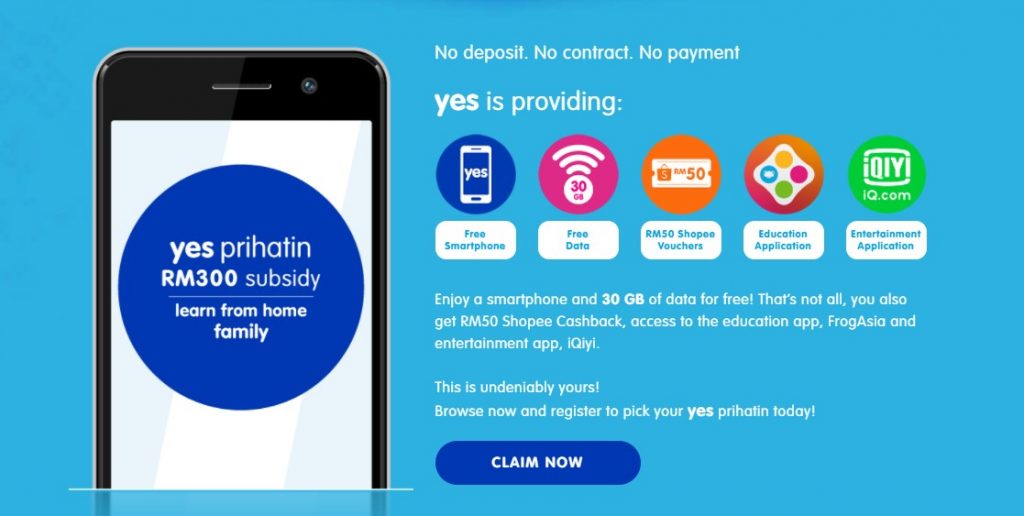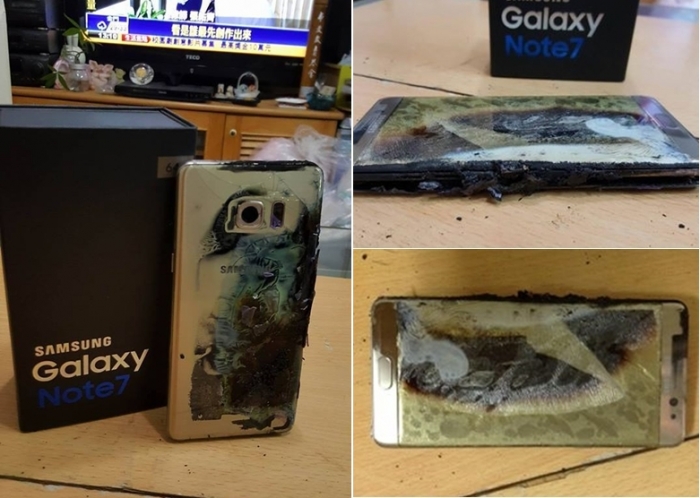As the daily positive cases of COVID-19 sees no significant drop in Malaysia, there seems to be no sight of light for the end of the lockdown, let alone the learning from home (PdPR) program for all Malaysian school goers nationwide, yet the third Yes Altitude 3 smartphone has been reported to burst into flames today, which could have almost hurt an innocent child who simply requires a proper smartphone for attending online classes.
Like the past two cases, Yes 4G has responded to the incident promptly and replaced with a new Yes Altitude 4 smartphone, which in a way is a responsible move for a start but really, having issued a statement for the past incident that the phone has passed quality control tests but instead blaming it on third party chargers doesn’t seem to be applicable to the current case this time, even if the student was indeed charging the phone using a third party power bank, the fact that this is the third battery to explode is already no funny matter.
Apa dah jadi ni?? Lagi sekali telefon pelajar meletup.
Dah banyak insiden telefon yang kerajaan edarkan ni meletup, tapi masih tidak ada apa-apa tindakan berat dibuat??
Paling tidak, tarik semula telefon ni dan ganti yang lebih berkualiti!
Kenapa lembap sangat nak bertindak?? pic.twitter.com/3Z3xi3dRHy
— Syed Saddiq (@SyedSaddiq) July 6, 2021
Yes 4G, its time to recall these so called low quality phones, and by all means, its not like you can’t replace them with proper branded smartphones, I’m sure companies like Samsung and Xiaomi would be willing to support this initiative if you asked, and how is it so difficult for you to recall these devices and have the ODM of China Mobile for a damage compensation for your brand’s reputation.
As a matter of fact, I have full respect for Yes 4G and the YTL Group as they have been very committed in supporting local education initiatives for the past few years, they could have been the role model of other carriers in supplying high quality products and devices to the end users with their all IP-based network, but these three cases alone have obvious charred that reputation, let alone the irresponsible statement for claiming that the two cases are “due to the user’s problem”.
In this case, let us be reminded of how Samsung dealt with the Galaxy Note 7 incident back then, while there was only one publicly reported case of the phone’s battery exploding in the country, the company has in fact initiated a recall of the Note 7 nationwide, offering users either a refund or a no-fee swap to the Galaxy S7 Edge, they even went as far as issuing a software update to stop users from using the device, instead of issuing a statement that the Note 7 ‘could have exploded due to a user problem’ or ‘it only happened in other parts of the world’, although this continued to be a meme for several years, the company ultimately restored confidence in consumers and even continue to make record sales on the following year.
The Jaringan Prihatin programme isn’t without free phones from other telcos, Digi for instance is offering a Samsung Galaxy A02 for free when customer signs up for a special Digi Prepaid or Digi Postpaid plan, although you will need to commit to the telco’s monthly data plan fee as opposed to Yes 4G’s offer of 12 months free data service, but the question here is if you are willing to put up with Yes 4G’s own branded phones and risk it being a hazardous smartphone? Read my write up here a few years back on why you shouldn’t be purchasing or using one.
Ultimately, Yes 4G is no hardware manufacturer, which is the reason why they can’t be entirely responsible for a device’s build quality and even if it is stamped by MCMC and SIRIM for passing safety standards, they do not necessarily translate into actual safe usage, and given the fact that even the most affordable Xiaomi phone already supports Yes 4G’s network and VoLTE, there’s simply no reason for the company to make and offer their own smartphones.
Yes 4G, time to get these phones back before they explode at a higher altitude.



